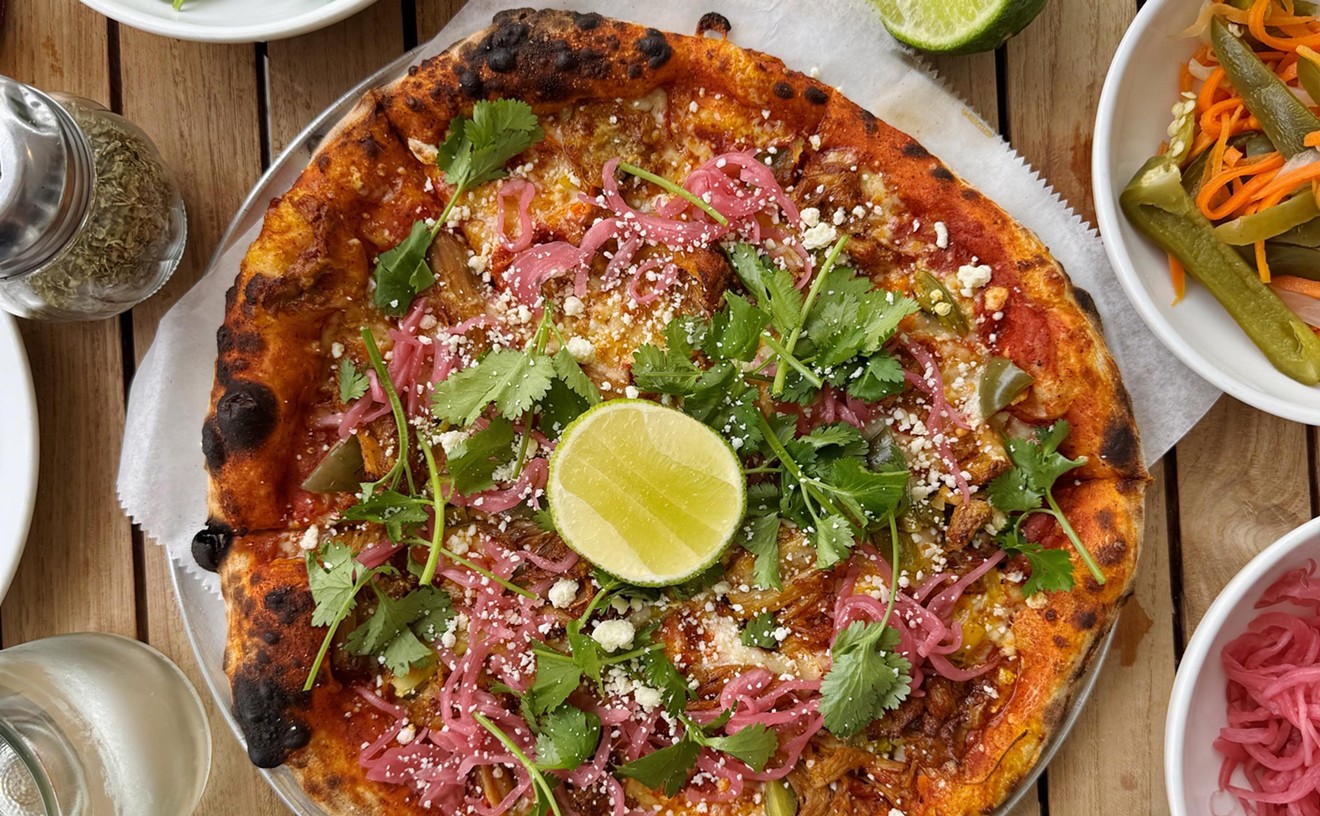For many people, pork is central to barbecue. In North Carolina and throughout the South, whole hogs are slow-roasted, pulled apart, and doused in spicy vinegar sauce. It's often made the centerpiece of the plate, woven into baked beans, or employed to make collard greens.
Yet none of it will be on the menu Wednesday, February 23, when a handful of the nation's most celebrated chefs gather for a kosher barbecue at Brickell's Rok Family Shul.
It won't be easy. Jewish dietary guidelines prohibit the consumption of pork and shellfish and the mixing of milk and meat. The guidelines give the chefs even more challenges. Any cooking equipment or utensils they plan to use must have been idle for at least 24 hours before the event. And all preparation has to be done in the synagogue's kitchen under the supervision of Rabbi Chaim Lipskar. That means things such as making custom spice blends, brining meats, and even basic chopping of vegetables will be performed onsite in a mad rush only hours before the hordes of eager, famished guests arrive.
But participants from across the country say the kosher challenge inspires creativity. For instance, North Carolina's Ashley Christensen of Poole's Diner, Beasley's Chicken & Honey, and Chuck's usually has free rein with ingredients and their preparations. But the kosher event will force her to try new things. She'll serve beer-can-roasted chickens alongside a barbecue potato salad with a dairy-free, emulsified dressing to maintain the traditional side's richness. "It's fun to have a set of parameters to work with," Christensen says.
"I love to be challenged, and I love to have to think about a dish in its entirety."
tweet this
The banner name on the event, however, is New Orleans' Alon Shaya. The Israeli chef oversees a fleet of wildly popular restaurants, including his eponymous Shaya, which claimed the James Beard Foundation's award for best new restaurant in mid-2016. The eatery's menu recalls Shaya's Israeli roots, but it's far from kosher.
"As a cook, naturally I love to be challenged, and I love to have to think about a dish in its entirety," Shaya says. "I love cooking food where there's a story involved... that has some type of meaning to somebody."
Shaya is "kosher style," the chef says. There's no pork or shellfish on the menu, but the restaurant doesn't hesitate to serve the yogurt-like dip labneh alongside lamb kebabs and foie gras. Every now and then, the kitchen offers kosher catering. That, he adds, is particularly rewarding because the community is underserved. Plus, the product is better in many cases because kosher rules have high standards for raising and slaughtering animals. For the SOBEWFF barbecue, Shaya will bring briskets from Grow and Behold, a kosher pasture in suburban New York. They will be slow-smoked and served with shaved Brussels sprouts tossed with cherries and almonds.
Zak Stern, a well-known Miami chef who will also participate, isn't following the same path. "We're going to do something with schmaltz and tongue and fermented vegetables alongside a black or brown bread," he says.
Stern owns a bakery that he never intended to be a kosher operation. But when he met Batsheva Wulfsohn, whom he later married, he started down an unexpected path. Batsheva and her sister made the family home kosher. "Then, when we were opening the bakery, she said, 'I want to be able to eat at the bakery,'" Stern recalls. "I said, 'No problem. I'll make it kosher.' Once you open that box, there's no going back."
He happily admits he didn't know what he was getting into. There was, for instance, the unexpected cost of keeping on staff a mashgiach — a supervisor who ensures his places follow kosher rules. "I keep trying to think like an artist who's told you can only use this color, and that color you can't use," he says. "There's no reason why you can't still make incredible food; there are plenty of cultures that are limited."
Burnt Ends: A Kosher BBQ Hosted by Alon Shaya
7 to 10 p.m. Thursday, February 23, at the Rok Family Shul, 35 SE Ninth St., Miami. Tickets cost $300.











